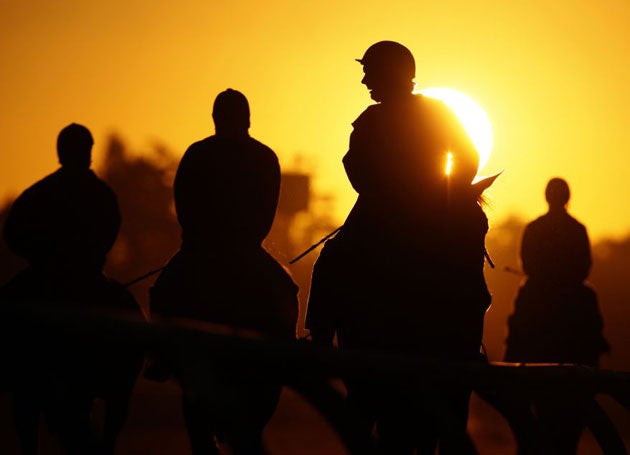The bespoke bookie who ran out of inside track

To punters who fancied having a flutter, D&E Associates offered the chance of getting one over on the bookmakers.
For a little more than £150 a year, Peter Deegan and Christopher Emmerson, two horse-racing experts with 60 years' experience between them, would advise betters where to put their money. Brochures lauded the quality of the privileged information, and offered the chance of netting £2,000 a week tax-free from surefire bets. Mr Deegan, D&E's managing director, had "been involved with horse racing for nearly 40 years" and worked as a "private handicapper for the biggest punter/owner in the UK", while Mr Emmerson was "extremely well known within racing".
But yesterday it emerged that the whole company was a con. Mr Deegan and Mr Emmerson didn't exist, and the tips that were being offered were duds. Denis McCarthy, 59, of Hove, East Sussex, went in front of the High Court accused of making false sales claims. Details of the case were released for the first time yesterday and revealed Mr McCarthy had failed to prove his claims that he had made more than £350,000 tax-free profit in six years by following his own tips. He had, the OFT said, instead made £300,000 from about 4,000 people who phoned a premium number weekly to receive three or four tips, paying up to £397 for a two-year "professional package".
Mr McCarthy was banned from publishing misleading advertisements for tipster services under the Control of Misleading Advertisments Regulations 1988. If he does, he risks a fine, imprisonment or seizure of assets, but he will be allowed to keep the money he made.
In another embarrassing twist for the authorities, D&E Associates may continue to offer tips to existing customers. In a call to The Independent last night, a man calling himself Luke Young claimed the firm had not conned customers and had indeed been receiving privileged information from the horse-racing world. "It's not that they [Deegan and Emmerson] don't exist. It's just that they didn't want to co-operate with the OFT," the man said.
"Horse racing is a very unique industry," he added enigmatically. "You hope to make money but you accept you may lose. And there are colourful characters out there."
Individuals with good knowledge of stables and horses do sell bona fide tips via classified ads in the racing press. Bruce Millington, editor of the Racing Post, said that the records of tipsters advertising in his publication were checked but that occasionally bogus tipsters obtained mailing lists of gamblers. "It's incredible how many people bite," he said.
The OFT believes bogus tipsters con the public out of £5m every year.
Mike Haley, the OFT's director of consumer protection, said: "These mailings used fictitious names and false claims to mislead thousands of consumers into sending money in the belief they would have access to a successful tipster service. We will continue to take strong action against those behind such scams."
Bookmark popover
Removed from bookmarks